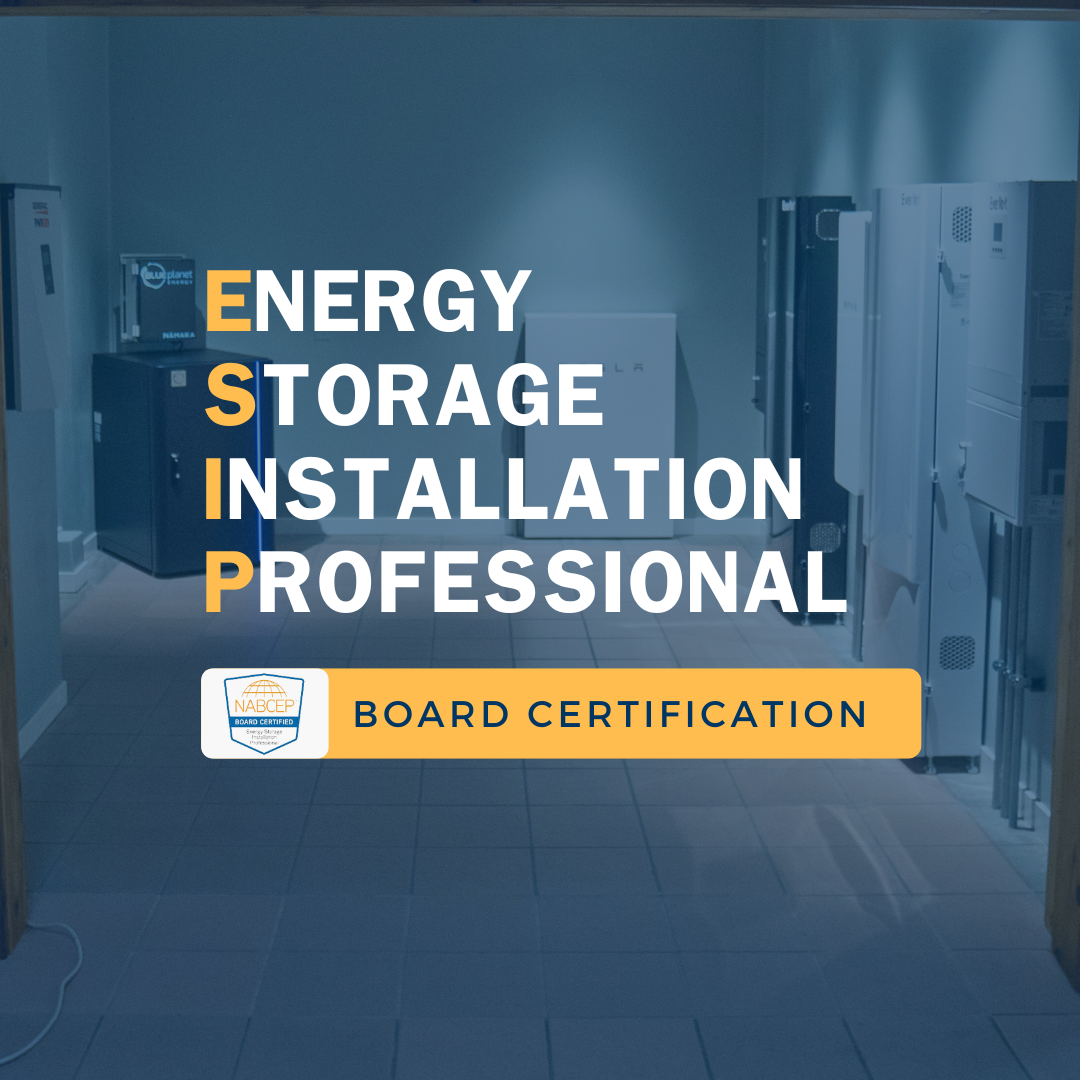More solar power and more EVs means energy storage is more popular and affordable than ever before, and it’s a critical piece of the clean energy transition for vehicles, homes, and businesses.
Jenny Heinzen, MREA Curriculum Director




Solar electric (PV) power has gone from a niche “alternative energy” to a mainstream market thanks to improvements in technology, lower prices, and an acute awareness of the environmental and societal benefits of producing and using renewable energy in lieu of harmful and finite fossil fuels. In 2023, solar power was responsible for more than half of all new electrical generation in the U.S.*
As our energy needs and sources evolve, so do our lifestyles and expectations. For example, we now use electricity to power our cars, trucks, vans, and buses. And since electric vehicles (EVs) need charging stations, they have become commonplace in garages, parking lots, and rest areas everywhere. In 2023, EVs held 7.6% of the U.S. market share with over 1.2 million vehicles sold, and that number is only expected to increase.**
More solar power and more EVs means energy storage is more popular and affordable than ever before, and it’s a critical piece of the clean energy transition for vehicles, homes, and businesses. The price of solar has dropped significantly in the last decade, and since batteries can be charged with solar power, the “PV+EV” relationship is logical and wise.
Lithium batteries are currently the most popular storage medium, with companies like Generac, Panasonic, and Tesla using them in their Solar Plus Storage (SPS) products and systems. For many reasons, lithium batteries are superior to other battery chemistries. Unlike lead-acid batteries that should only be drained to 50% of their capacity, for example, lithium battery packs can be depleted to practically empty and still be able to fully recharge without losing their strength or longevity.
PV systems coupled with energy storage guarantee that a home or business owner will still be able to power chosen electrical loads when grid power is lost. For larger consumers that are charged higher rates during peak times, energy storage systems can be deployed to serve those loads, decrease demand on the electrical grid, and save money by “peak shaving” at critical times of the day.
Solar Plus Storage systems are the apex of today’s renewable energy technology options. Solar is no longer a tiny niche market that only the rich can afford, and battery management systems have proven to be a worthwhile assurance that the lights can stay on when a storm rolls through and the power goes out.
Consider this as your invitation to come and see MREA’s Energy Storage System (ESS) Tech Center in Custer, WI for a demonstration of innovative products and systems, visit midwestrenew.org/energytechcenter to watch a series of tutorial videos by MREA’s Solar Project Manager Nick Matthes, or register for one of our SPS course offerings to learn more about the technology and its many benefits.
*U.S. Solar Market Insights: Wood and SEIA, March 2024
**Kelley Blue Book, Cox Automotive, January 2024
Learn more about the U.S. solar market insight at: https://www.seia.org/us-solar-market-insight
To learn more about the Midwest Renewable Energy Association’s Energy Storage System Tech Center, visit: https://www.midwestrenew.org/energytechcenter/
READ MORE MREA ARTICLES: Midwest Consumers’ Guide to the Energy Transition
Written by MREA staff, regional experts and professionals, the Midwest Consumers’ Guide is your how-to resource to best engage with the programs, technologies, practices, and advocacy efforts driving energy efficiency, electrification, and local clean energy development in the Midwest.

*U.S. Solar Market Insights: Wood and SEIA, March 2024
**Kelley Blue Book, Cox Automotive, January 2024
Learn more about the U.S. solar market insight at: https://www.seia.org/us-solar-market-insight
To learn more about the Midwest Renewable Energy Association’s Energy Storage System Tech Center, visit: https://www.midwestrenew.org/energytechcenter/

Energy Storage Installation Professional (ESIP)
MREA provides NABCEP-approved courses for ESIP Certification, aligning with our commitment to accredited education. The ESIP Board Certification is a prestigious credential signifying expertise in energy storage systems, crucial for solar and energy storage roles.
Students can take these courses to meet the requirements for ESIP certification:

